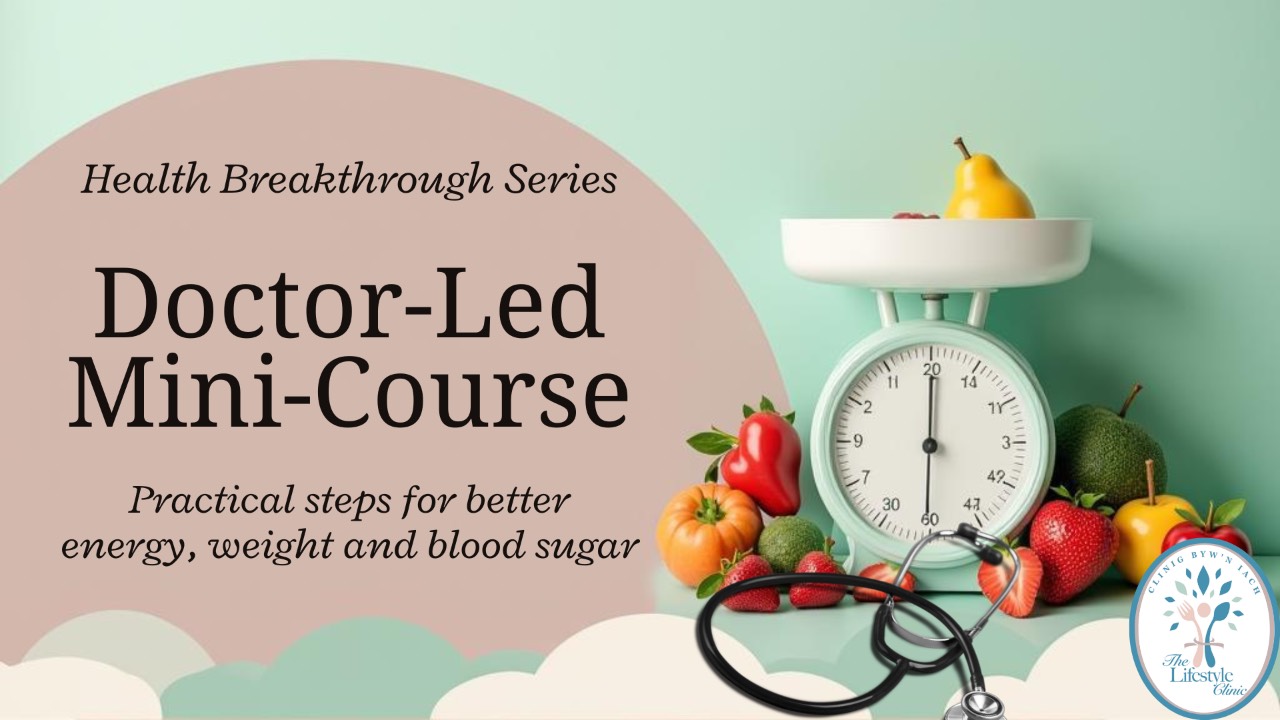Cholesterol & The Low Carb Diet
Feb 07, 2023I am often asked how will the low carb diet affect my cholesterol? Because when we lower the carbs, we increase the healthy fats. And of course, we have been told for many years that eating more fat, will increase cholesterol and lead to heart attacks & strokes.
So in this article lets discuss what is cholesterol, why does it matter, what are heart attacks, understand the blood test and what can we expect when we lower the carbs?

What is Cholesterol?
Cholesterol is a type of fat. It is critical to life as part of the cell wall, its used to make hormones, vitamins & bile acids that are used for digestion of food.
There are two ways cholesterol gets in to your body. One is by eating fat, and the other is by producing it in the liver. It’s important to realise this because the reality is: if you don’t eat enough your liver will be working hard to produce it to keep levels stable in the blood.
When we eat fat, it cannot enter the blood as other nutrients or Glucose does. We all know that fat and water don’t mix, otherwise we will have clogged pipes.

Our bodies have overcome this by creating molecules to carry the fat – like a taxi for fat. These are called lipoproteins.
And it is these lipoproteins are what is often referred to as ‘cholesterol’ in the blood.
There are different types of taxi’s or lipoprotein depending on where they need to go.

The first are called chylomicrons. These are big and fat and full of triglycerides. In fact they are sometimes called triglycerides. These carry the fat from the intestines to the liver, the muscles and the fat cells.
Next comes the LDL cholesterol. These carry fats from the liver to the rest of the body.
The smallests of the taxi’s are HDL’s which carry fat from the body back to the liver.
All of these form a critical system, making sure that fats are carries safely to where they need to be used. This is similar to taxi's transporting on a road system:

So why is this normal process linked to heart attacks?
Damaged cholesterol is sticky and attaches to blood vessel wall. LDL is particularly susceptible in the presence of smoking, diabetes and being overweight to become damaged. When it starts sticking to blood vessel wall – it makes it hard and inflexible and eventually causes a narrowing. This is called atherosclerosis.
A narrow blood vessel impairs blood flow. The coronary artieries are the blood vessels that carry oxygen to the heart muscles. A narrowing here means that the heart muscle can become starved of oxygen – this is called angina. It causes pain. If the pipe becomes completely blocked, then the muscle can die and this is what is also known as a heart attack.
But it gets more complicated than this. Because the current belief is that some cholesterol is good and some is bad. Lets take a look at this:
Total Cholesterol: Is the sum of all the different types of cholesterol; good and bad.
HDL: good cholesterol. We want this as high as possible
LDL: ‘bad cholesterol’ that we want as low as possible
Triglycerides: high levels of this in the blood is also linked to heart disease.
As doctors we use these numbers, we calculate ratio’s of good cholesterols but we also look at other risk factors when we decide if your cholesterol is too high or not. Statins are the medication to lower cholesterol – it lowers LDL and total cholesterol. However it doesn’t usually increase the good cholesterol or lower the other ‘bad cholesterol’ called triglycerides.
What we want is a way of lowering the bad and improving the good, whilst losing weight, lowering blood sugar, lowering blood pressure and improving energy and preferably without feeling hungry. This is where the low carb diet comes in. Is there a way to lower the bad cholesterol while increasing the good simultaneously.
Next let’s look at what happens when we lower the simple carbohydrates. I have been monitoring people’s cholesterol profiles since 2018. Here’s what I’ve seen:

Total cholesterol can either go up or down, we now know that this number doesn’t give us enough information. The triglycerides consistently decrease. This is because the absence of Glucose means that the metabolism has adjusted to use fat as fuel. The fat is therefore not in the blood but rather in the cells being used. People on a ketogenic diet rely on triglycerides as their main source of fuel.
The HDL increases. This is great as there is plenty of evidence that high HDL protects your heart from heart attacks. And the LDL? The LDL mostly decreases with LCHF diet but sometimes it does go up. There is good debate as to whether this really matters, as there is such an improvement of all risk factors for heart attacks and strokes. Some people can become what we call ‘hyper-responders’ These people tend to be healthy metabolically and the significance of LDL cholesterol is the root of much research currently.
I hope this helps clarify some of the mystery surrounding cholesterol. The science is forever changing, and there is much debate about the link between cholesterol and heart disease.
References
Furie MB, Mitchell RN. Plaque attack: one hundred years of atherosclerosis in The American Journal of Pathology. Am J Pathol. 2012;180(6):2184-2187. doi:10.1016/j.ajpath.2012.04.003
Mansoor N, Vinknes KJ, Veierød MB, Retterstøl K. Effects of low-carbohydrate diets v. low-fat diets on body weight and cardiovascular risk factors: a meta-analysis of randomised controlled trials. Br J Nutr. 2016;115(3):466-479. doi:10.1017/S0007114515004699
Teuta Gjuladin-Hellon, Ian G Davies, Peter Penson, Raziyeh Amiri Baghbadorani, Effects of carbohydrate-restricted diets on low-density lipoprotein cholesterol levels in overweight and obese adults: a systematic review and meta-analysis, Nutrition Reviews, Volume 77, Issue 3, March 2019, Pages 161–180, https://doi.org/10.1093/nutrit/nuy049

